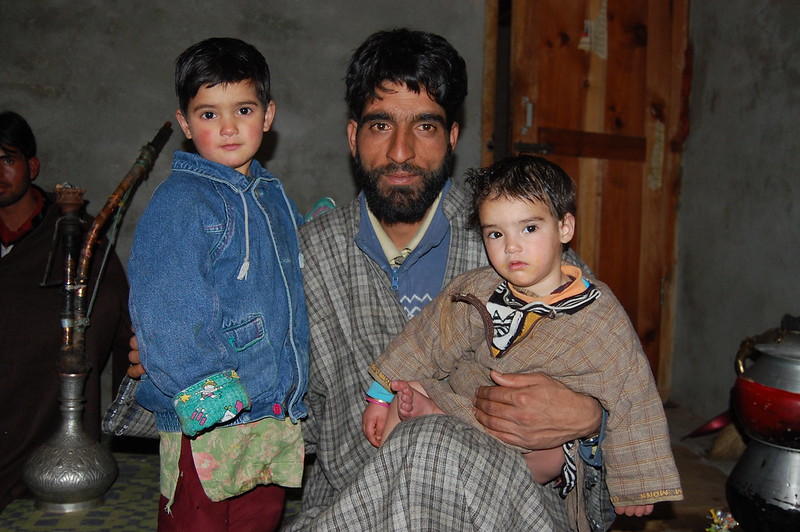- About
- Topics
- Story
- Magazine
- In-Depth
- Picks
- Opinion
- News
- Donate
- Signup for our newsletterOur Editors' Best PicksSend
Read, Debate: Engage.
| topic: | Sustainable Consumption |
|---|---|
| located: | India |
| editor: | Mehroob Mushtaq |
In Dudran, a milk-centric village in Baramulla, Kashmir, residents operate their milk business without relying on electricity-consuming refrigerators. Instead, they depend on traditional wisdom for their milk-related activities. This small village with 79 homes is important because the people here have continued the tradition of storing milk for many generations.
Doud Khot are tiny cave houses that work as natural fridges for villagers. They are built near natural springs to keep the milk and dairy cool and fresh. Khots are small houses made of stones and wood, with fences to keep animals away from the milk and other things. In Dudran, people only work with cow milk and its products.
In the village, milk is stored in a doud, an old method that doesn't require electricity and stays fresh for many days. The practice is climate-resilient, as it works well in different weather conditions.
Dairy products from Dudran's Doud Khot are pure and healthy, without artificial preservatives. According to a resident, Shabroz Ahmad, in the winter chill, fresh milk is kept in earthen or steel pots inside the khots, staying warm and quickly turning into curd.
The milk storage solution in Dudran, utilising Doud Khot near natural springs, contributes to mitigating negative climate impacts, and by avoiding electricity-consuming refrigerators, the village reduces its carbon footprint, promoting environmental sustainability, said Rouf ur Rafiq, an Assistant Professor at the Higher Education Department Government of Jammu and Kashmir.
The reliance on traditional, low-tech methods aligns with eco-friendly practices and minimises the village's overall environmental impact, he added.
Dudran's traditional wisdom preserves a cultural tradition and offers a climate-resilient and environmentally-conscious alternative for milk storage. According to Rafiq, this approach is resilient to potential disruptions caused by climate-related power outages, ensuring a more dependable milk storage system even in adverse conditions.
This sustainable model in Dudran can inspire other communities, promoting the adoption of environmentally friendly practices, reducing the overall impact of Anthropogenic activities on the climate and achieving one of the Sustainable Development Goals.
The villagers use doud khots to store all the milk and its products naturally. Families making money by selling milk can earn around Rs 20,000 monthly, and they don't have extra costs for refrigerators or electricity bills.
During summers, almost every home in Dudran keeps milk, turning it into butter and curd using a process called "gurus" in the local language.
People in Dudran say the pure, untouched milk and its side products keep them well. Since they don't have modern healthcare, their homemade goods help them deal with different health issues.
Dudran's entire economy centres on cow milk and its delicious products, making these simple Doud Khots the heart of a long-standing dairy trade that supports livelihoods and preserves a way of life, said Dr Irshad Ahmad, the head of the Animal Husbandry Department of Uri Baramulla’s Boniyar division. It is unique for sticking to sustainable and weather-resistant practices.
In the face of climate change and sustainability issues worldwide, Dudran teaches a valuable lesson: the solutions we need can be found in the wisdom passed down from our ancestors.
Imagee by Praneet Kumar.

